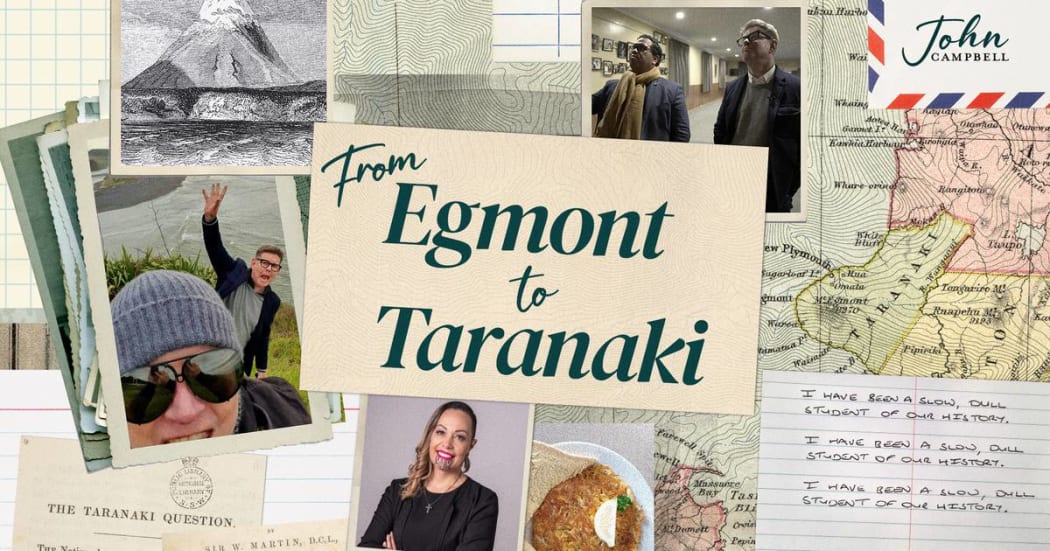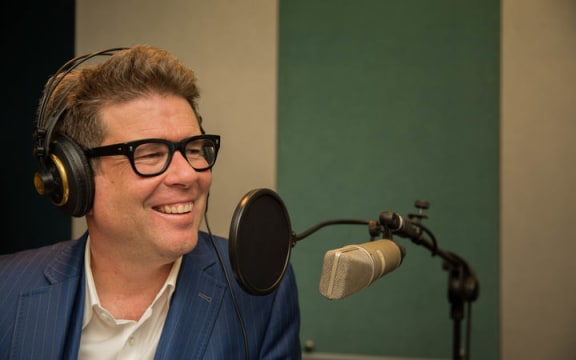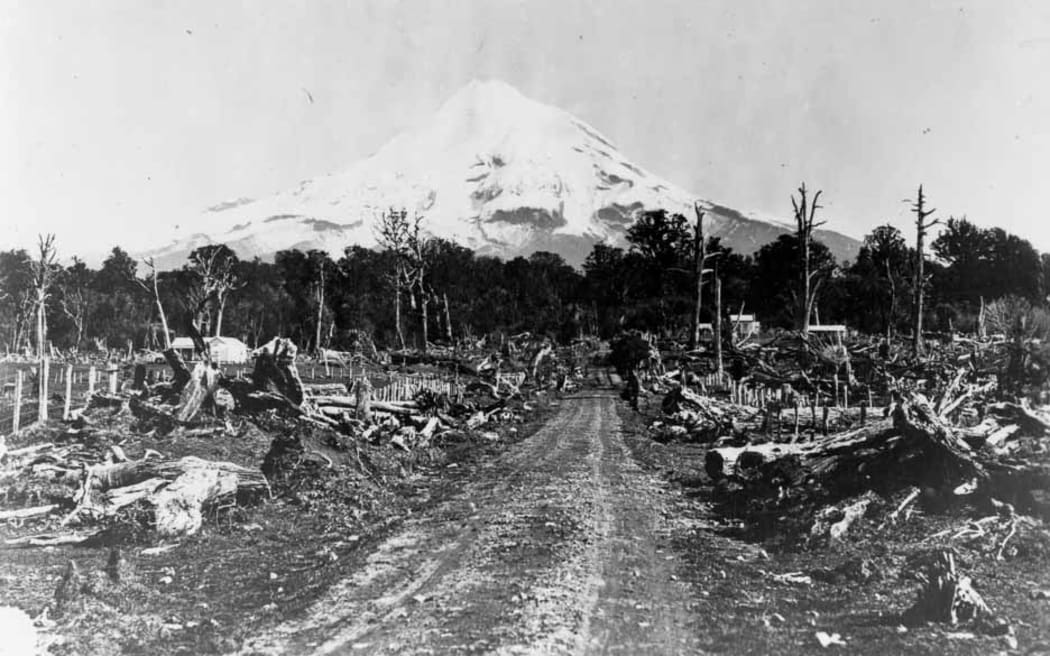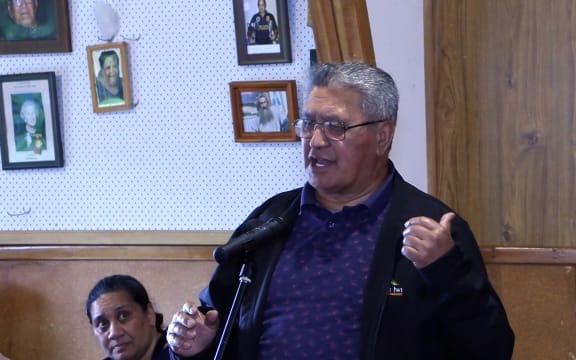Journalist John Campbell's latest podcast premieres on Labour Day on TVNZ.
From Egmont to Taranaki "is a personal story of Pākehā me ... Who didn't know what I didn't know, until I began discovering it," Campbell said.
He talked to RNZ's Jim Mora about the thoughts it has left him with, the parts of our history and its current legacy that he wants every New Zealander to know, and what provoked this journey.

Photo: TVNZ
"I'd been thinking about it for years, and ... I started to think more and more about the fact that racism was a Pākehā issue - it should be Pākehā speaking out against it. But the last thing you want in life is someone from Grey Lynn tut-tutting you.
"So I suddenly realised that in order to be effective, I needed to do a mea culpa. I started thinking about my own journey. I realised that I'd come from the same ignorance and stupidity and lack of knowledge, so I wanted to chart my knowledge in the hope I could take people with me."

John Campbell Photo: RNZ
He was unsettled about some of the currents swirling around issues of race and identity at the moment.
"You know when the weather presenter on TV says Te Wai Pounamu, instead of the South Island - people do their nut.
"Now I don't know why we would hold to the name 'the South Island,' which is possibly the ugliest place name in the history of geography, so passionately.
"And so it speaks of something that is overblown and disproportionate, and I think we need to address it in ourselves - and when I talk about ourselves I'm talking about our Pākehā selves. And so I thought, 'right, I'm going to address it, and hopefully take people with me'."
Campbell had been taking road trips around New Zealand with a dear friend. Among those trips were visits to Taranaki, and he began to learn more about the tragic history of Parihaka.
"I knew a little bit, but not enough. I learned about the confiscation of 1.2 million acres of land - and I kept thinking that people who complain about using a Māori name on a block of chocolate, or calling the South Island Te Wai Pounamu, need to keep things in perspective.
"Because in 1863 our Parliament - we talk about one law - our Parliament wrote a law that enabled the confiscation of 1.2m acres of land in Taranaki. That's something worth getting upset about - Miraka Kirīmi on a block of chocolate isn't.
"So I thought, I'm going to tell this story - but ... I'd been a slow dull student, I was a bit slow ... but I hope I'm getting there and I hope I can take people with me."

An early photo of Parihaka Village. Public domain. Photo: NZ History
Campbell said that for him, wondering whether his project could make a difference or not was not the right question to ask. A comment by early female war correspondent Martha Gellhorn summed up his determination to carry out the project.
"All my reporting life I have thrown small stones into a large pond, and I have no idea even whether they made even the slightest ripple," he quoted Gellhorn as saying. ..."but I don't need to worry about that - my responsibility was the effort."
It had inspired his attitude toward his work: "I think our responsibility is the effort," he said. "For me that's what journalism is about, so I sort of picked that up and made that what the story is."
Another saying at the heart of the podcast was: "When I look at a map of Taranaki and the confiscation line, it is an arrow piercing the heart of my people," said by kaumātua Peter Moeahu, the father of current New Plymouth District Councillor Dinnie Moeahu - whose great-great-grandfather was one of the ploughmen who took part in the pacifist Parihaka protest against land iwi confiscations.
"This is the thing about this history - it's really recent," Campbell said.

Peter Moeahu Photo: Supplied / Te Korimako o Taranaki
Campbell himself is a second-generation New Zealander. His mum's family was Danish, and his dad's family English, presumably with Scottish roots way back somewhere, he said.
"We're a classic immigrant family, and I don't really know my stories and I suspect many of the people listening are in the same boat. But I don't feel [sad about that] - this is my place.
"When I cheer for a team it's the Wellington Lions, or the Hurricanes or the Black Ferns this is my place. But it's beholden on me to understand our history."
Some people's approach to the difficult parts of New Zealand's past is to say, "Why don't people get over it?" Campbell said with frustration.
"I met this amazing woman called Puna Wano-Bryant who lives in Waitara ... and [she] would respond by saying : 'You can't get over it where everywhere you look there are reminders of colonisation'.
"The land gets taken, then the land gets developed, the land falls into private hands, and the land gets the names - the street names, of the colonisers," Campbell rattles off.
"So, not only if you are Māori in Taranaki, do you almost certainly come from an iwi or a hapū who had land confiscated from them, but you live every day with the reminders of that in the form of the names of the colonisers on the streets you live in.
"Now Puna Wano-Bryant's argument - and I agree with her, is that that constantly tells you that you aren't worth very much."

